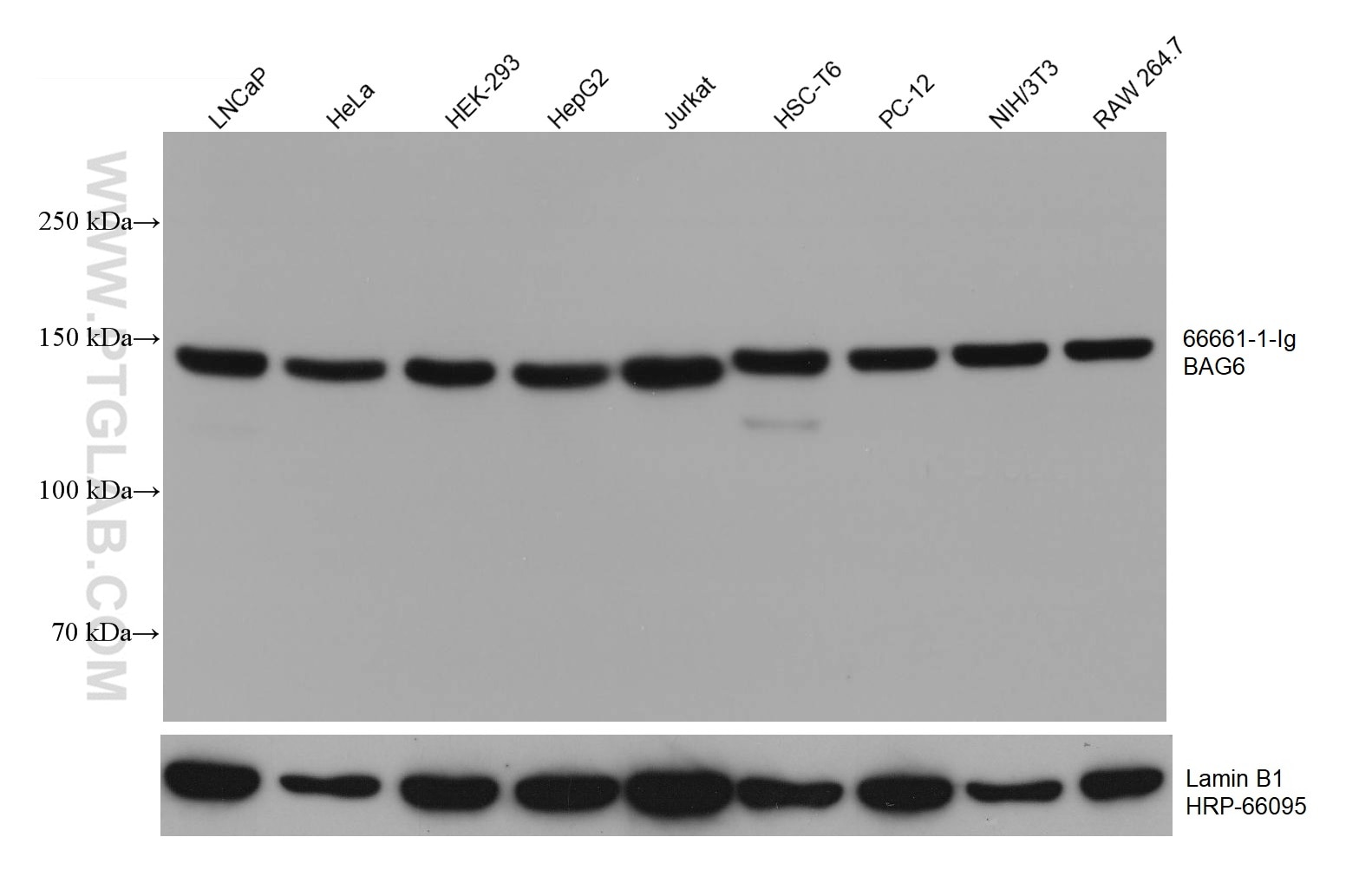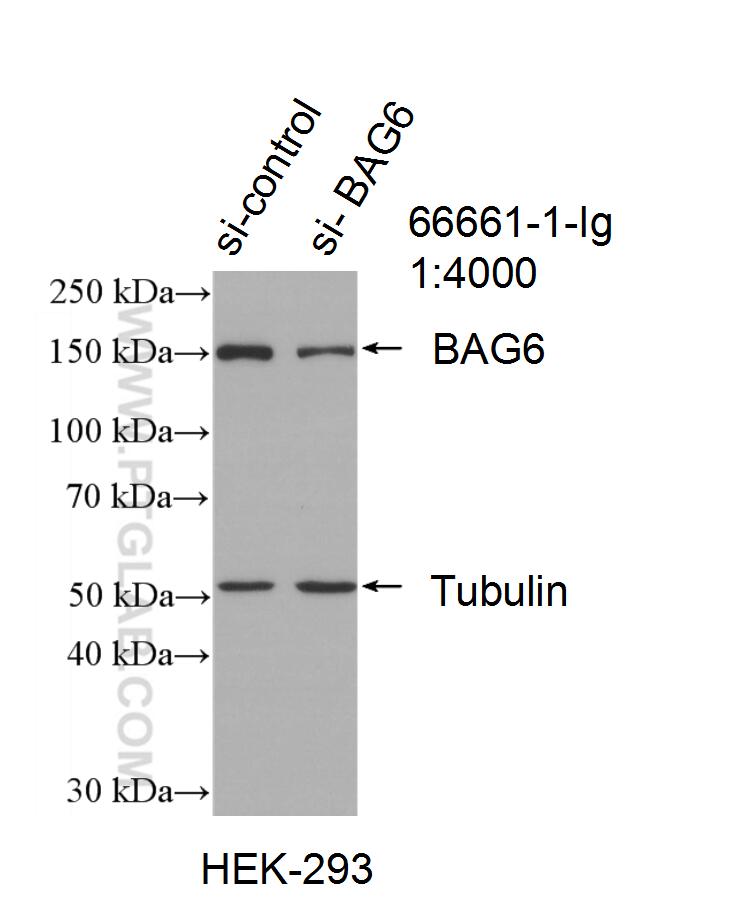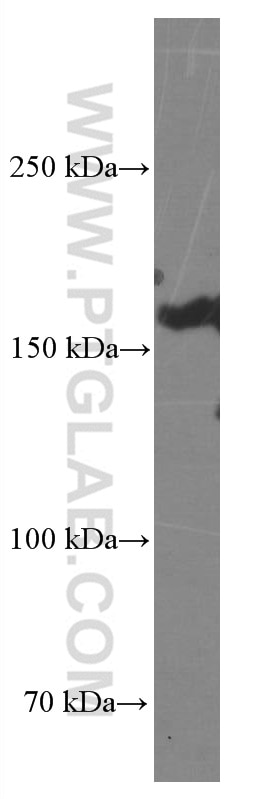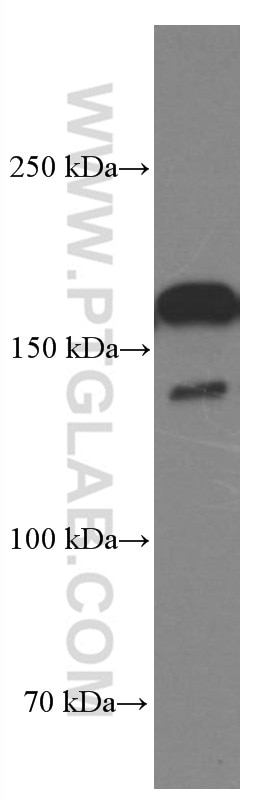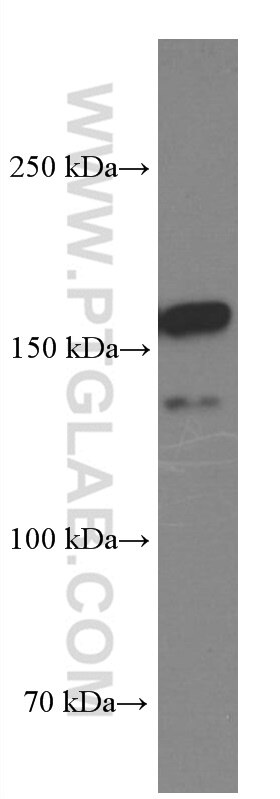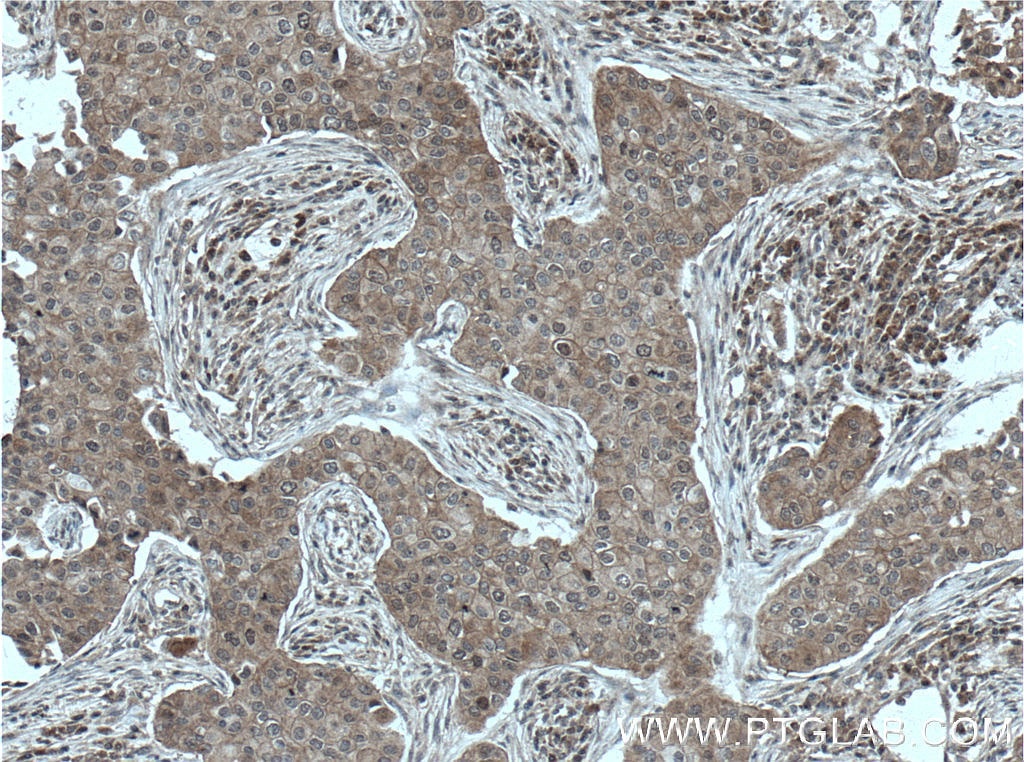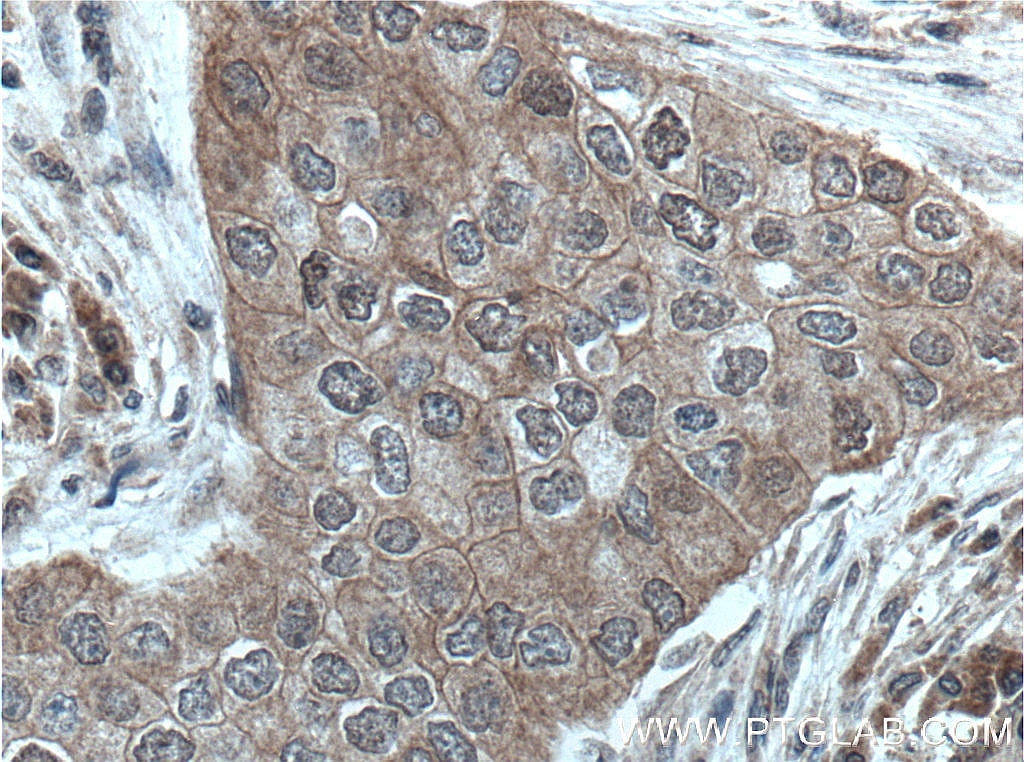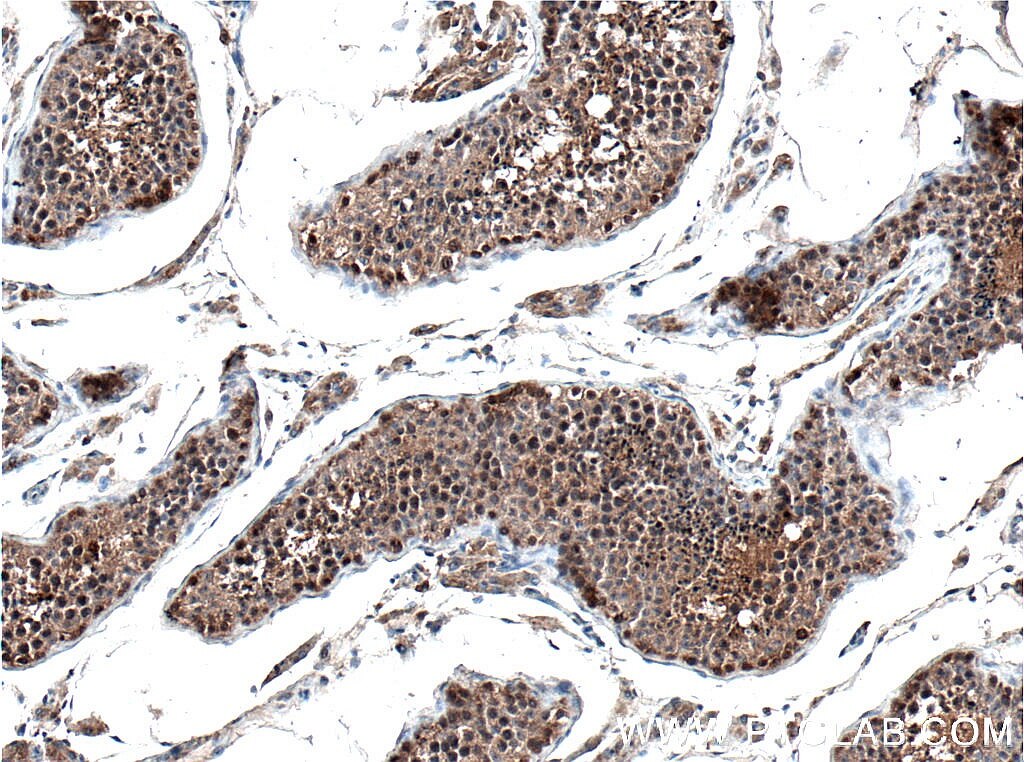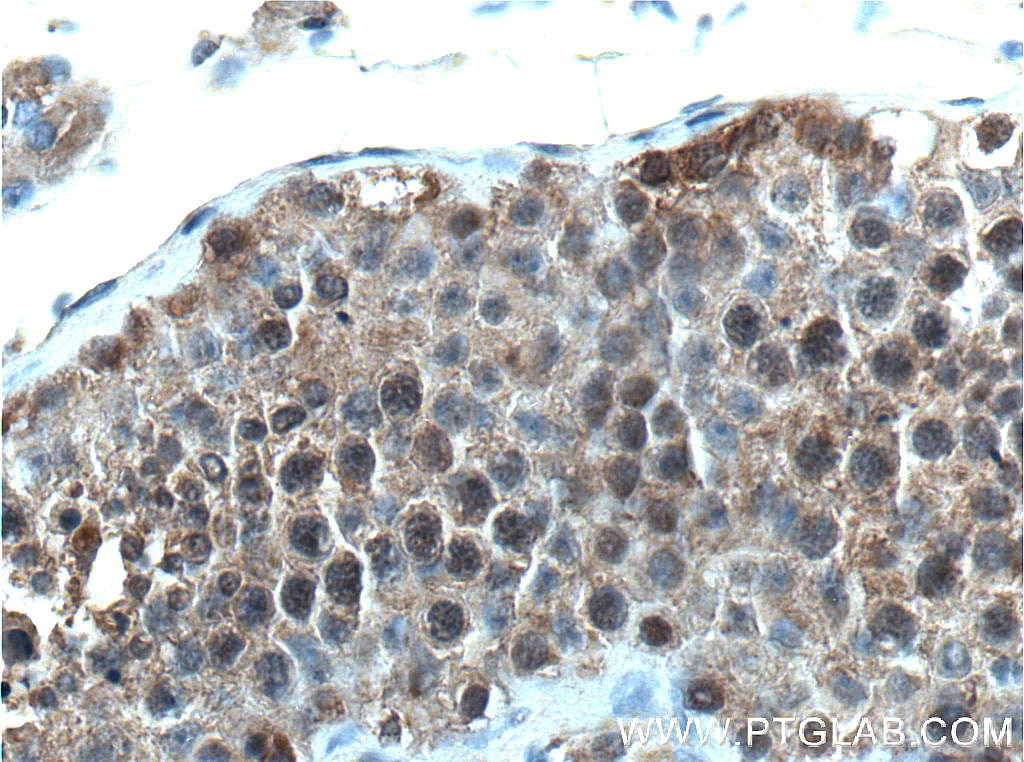- Featured Product
- KD/KO Validated
BAG6 Monoklonaler Antikörper
BAG6 Monoklonal Antikörper für IHC, WB, ELISA
Wirt / Isotyp
Maus / IgG1
Getestete Reaktivität
human, Maus, Ratte
Anwendung
WB, IHC, ELISA
Konjugation
Unkonjugiert
CloneNo.
1B8D3
Kat-Nr. : 66661-1-Ig
Synonyme
Galerie der Validierungsdaten
Geprüfte Anwendungen
| Erfolgreiche Detektion in WB | LNCaP-Zellen, HEK-293-Zellen, HeLa-Zellen, HepG2-Zellen, Jurkat-Zellen, NIH/3T3-Zellen, PC-12-Zellen, RAW 274.7-Zellen |
| Erfolgreiche Detektion in IHC | humanes Mammakarzinomgewebe, humanes Hodengewebe Hinweis: Antigendemaskierung mit TE-Puffer pH 9,0 empfohlen. (*) Wahlweise kann die Antigendemaskierung auch mit Citratpuffer pH 6,0 erfolgen. |
Empfohlene Verdünnung
| Anwendung | Verdünnung |
|---|---|
| Western Blot (WB) | WB : 1:5000-1:50000 |
| Immunhistochemie (IHC) | IHC : 1:50-1:500 |
| It is recommended that this reagent should be titrated in each testing system to obtain optimal results. | |
| Sample-dependent, check data in validation data gallery | |
Veröffentlichte Anwendungen
| WB | See 1 publications below |
Produktinformation
66661-1-Ig bindet in WB, IHC, ELISA BAG6 und zeigt Reaktivität mit human, Maus, Ratten
| Getestete Reaktivität | human, Maus, Ratte |
| In Publikationen genannte Reaktivität | human |
| Wirt / Isotyp | Maus / IgG1 |
| Klonalität | Monoklonal |
| Typ | Antikörper |
| Immunogen | BAG6 fusion protein Ag24525 |
| Vollständiger Name | HLA-B associated transcript 3 |
| Berechnetes Molekulargewicht | 119 kDa |
| Beobachtetes Molekulargewicht | 150-160 kDa |
| GenBank-Zugangsnummer | BC003133 |
| Gene symbol | BAT3 |
| Gene ID (NCBI) | 7917 |
| Konjugation | Unkonjugiert |
| Form | Liquid |
| Reinigungsmethode | Protein-A-Reinigung |
| Lagerungspuffer | PBS mit 0.02% Natriumazid und 50% Glycerin pH 7.3. |
| Lagerungsbedingungen | Bei -20°C lagern. Nach dem Versand ein Jahr lang stabil Aliquotieren ist bei -20oC Lagerung nicht notwendig. 20ul Größen enthalten 0,1% BSA. |
Hintergrundinformationen
BAT3 also known as Scythe or BAG6, is a nuclear protein implicated in the control of apoptosis and natural killer (NK) cell-dendritic cell (DC) interaction. BAT3 was first discovered as a member of a group of genes located within the class III region of the human major histocompatibility complex on chromosome 6, and has been extensively studied for its role in regulating apoptosis under various stress conditions such as DNA damage and endoplasmic reticulum-related stress. BAT3 has been shown to be required for p53 acetylation, which is critical for the enhancement of p53 transcriptional activity in response to DNA damage. In addition, BAT3 is involved in the regulation of development and reproduction of mammals by acting as a co-chaperone of the heat shock protein HSP70.
Protokolle
| Produktspezifische Protokolle | |
|---|---|
| WB protocol for BAG6 antibody 66661-1-Ig | Protokoll herunterladen |
| IHC protocol for BAG6 antibody 66661-1-Ig | Protokoll herunterladen |
| Standard-Protokolle | |
|---|---|
| Klicken Sie hier, um unsere Standardprotokolle anzuzeigen |
Publikationen
| Species | Application | Title |
|---|---|---|
Mol Cell RNF126-Mediated Reubiquitination Is Required for Proteasomal Degradation of p97-Extracted Membrane Proteins. |
